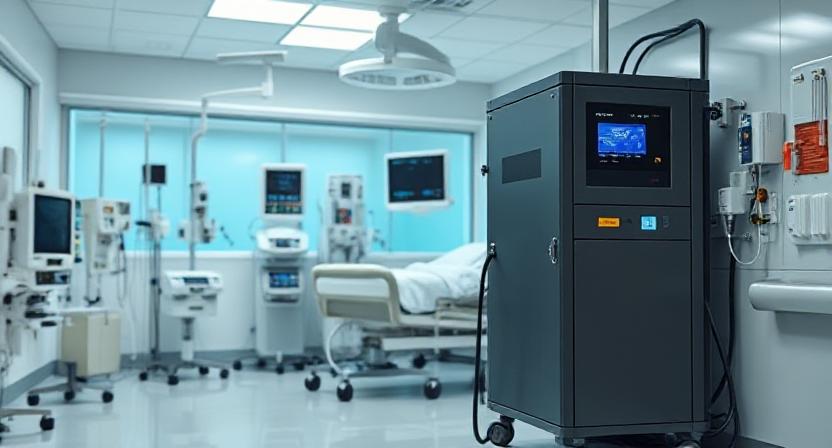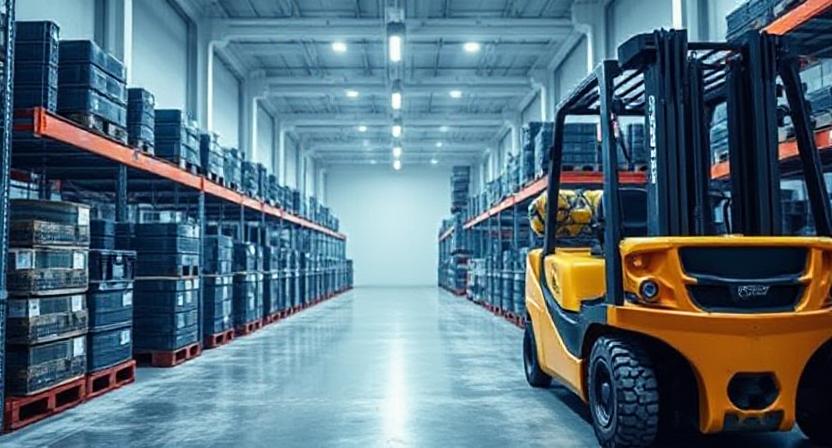In healthcare, having dependable power is essential, not just a convenience. Hospitals, laboratories, and clinics depend on steady electricity to keep vital equipment running. To help with patient care and avoid mistakes or downtime, devices like ventilators, patient monitors, medication pumps, and imaging systems need to be powered all the time.
Hazards can be high when these systems lose power even for a short time. That’s why healthcare organizations are looking for better ways to get energy. Among the most trusted options today are industrial lithium batteries, known for their long life, fast charging and strong performance.
Lithium battery technology, which is usually found in things like forklifts, can now be used in medical environments. Just like a forklift battery powers heavy equipment for long hours, these batteries can do the same for life-saving machines in healthcare.
The Risk of Power Interruptions in Medical Settings
Power interruptions in hospitals can cause delays in treatment, loss of data, or even equipment failure. Imaging a ventilator stopping working at a critical moment, or diagnostic machine losing data during an examination. In these cases, medical teams may face big problems, and patients may be in danger.
Such problems can happen during local blackouts, battery failure or when too many devices overload the system. Backup systems are required to prevent disruptions, especially in emergency rooms, operating rooms, and intensive care units.
Mobile devices like carts and workstations also need to function without interruptions. For these, battery-powered mobility is key. This is where the reliability of lithium batteries becomes helpful.
Why Older Battery Systems Fall Short?
Traditional Lead-acid batteries are still used in a lot of healthcare facilities. While they have been used for years, they come with many drawbacks. Most of the time, these older batteries don’t last as long, take longer to charge and need to be maintained more often. Their speed decreases as time goes on which might cause unexpected breaks in service.
Frequent replacements also increase costs and waste time for facility teams. For mobile medical equipment, a slow or failing battery can reduce productivity and cause frustration for healthcare workers.
In a fast-moving environment like a hospital, these issues are more than just small delays—they can affect patient safety. Switching to advanced options like a forklift battery or other industrial lithium batteries offers more consistent performance and fewer problems over time.
How Industrial Lithium Batteries Make a Difference?
The shift to lithium batteries brings several benefits to healthcare operations. To begin, they charge a lot faster than older battery types. This means less waiting time and better equipment availability. They also last longer which reduces the need for frequent replacements.
Another big advantage is their consistent power output. Even when they’re being used a lot, these batteries work well and keep devices running smoothly without dropping power. This is especially helpful for devices like imaging machines and systems that keep track of patients’ health.
Built-in safety features, like smart battery management systems (BMS), help regulate charging and usage. These systems protect against overheating, overcharging, or short circuits common risks in battery-powered equipment.
Mobile medical carts, portable X-ray machines, and point-of-care devices are perfect matches for this battery type. Just like forklift battery supports long shifts in a warehouse, lithium batteries can support long hospital shifts with minimal interruption.
Built-in Safety and Compliance Support
Medical facilities must follow strict safety, and compliance rules when it comes to power systems. One reason industrial lithium batteries are growing in popularity is their advanced safety design. They include thermal protection to prevent overheating and shut-off features to avoid overload.
Battery management systems for forklifts monitor each cell’s performance, keeping the entire system in check. This reduces the chances of sudden failure and adds another layer of protection for sensitive medical devices.
These batteries also meet safety standards set for use in medical equipment. Choosing compliant power sources helps healthcare providers avoid risks and stay in line with regulations, especially for critical care areas.
Real Applications of Forklift Battery in Healthcare
The use of forklift battery technology in healthcare has expanded quickly with many direct applications:
- Mobile Workstations: Nurses, and doctors rely on carts to access patient records and perform tasks at the bedside. Lithium batteries keep these carts running longer with fewer charging breaks.
- Portable Diagnostic Devices: Imaging tools and monitors need reliable mobile power. With fast charging and stable output, lithium batteries are a good match.
- Backup Systems: In surgical rooms and intensive care units, backup battery power is needed in case of grid failure. These batteries can step in instantly and keep operations running.
- Remote Monitoring Equipment: Devices used at home or in field clinics benefit from lightweight, long-lasting power. Using forklift battery for medical tools makes them portable and long-lasting.
What Green Cubes Offers to the Healthcare Industry?
Green Cubes Technology has a lot of experience designing, and providing battery systems that work well in challenging environments. With a background in industrial power solutions like forklift battery, they now create custom battery packs that meet healthcare standards.
These battery systems are tailored for the healthcare industry, offering features like built-in safety controls, fast charging, and long operating life. Green Cubes works with OEMs, and healthcare providers to design solutions that match specific power needs.
From development to installation, and after-sales support, Green Cubes helps customers maintain a strong, and stable energy foundation for their critical equipment.
Power Support That Healthcare Can Count On
Steady power is essential for providing good care to patients. In healthcare environment, where uptime is essential and equipment is in constant use having a dependable battery system makes a big difference.
Whether powering a mobile cart, or acting as a backup for a diagnostic device, industrial lithium batteries deliver stable performance with fewer service needs. And with the strength of a forklift battery behind them, they’re built to last through long workdays and high-demand situations.
Healthcare teams looking for steady energy solutions can benefit from working with Green Cubes Technology. Their custom-designed lithium battery systems help keep equipment running, patients safe, and care delivery smooth.


